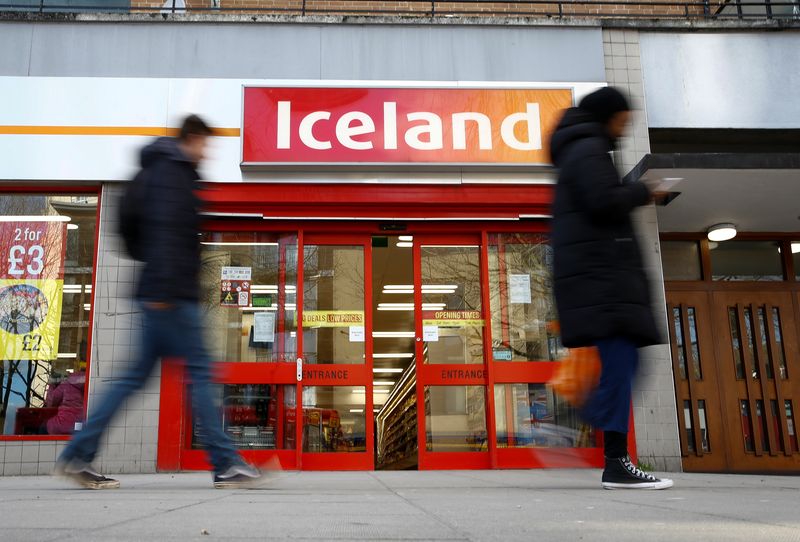LONDON (Reuters) - Iceland Foods on Tuesday became the latest supermarket group in Britain to announce food price cuts, in a further sign that a surge in food inflation over the last year could be abating.
Stubbornly high inflation has become a major political issue in Britain as it outstrips pay growth, and supermarket chains have had to defend themselves against claims they are profiteering from a cost-of-living crisis.
All of Britain's major food retailers, including market leader Tesco (LON:TSCO), Sainsbury's and Marks & Spencer, have announced price cuts of some staple items in recent weeks - moves closely watched not just by consumers but also by the Bank of England and lawmakers.
Iceland Foods, which specialises in frozen foods and trades from over 950 stores and online, said it had cut the prices of 500 household essentials.
Reduced items include a pack of 15 Youngs fish fingers, cut to 2.0 pounds ($2.62) from 3.50 pounds, McCain home chips (2.25 kg), cut from 5.0 pounds to 4.25 pounds, and Iceland chicken breast fillets (600g), cut from 4.0 pounds to 3.60 pounds.
Official data for UK inflation in June will be published on Wednesday. It was running at 8.7% in May, the highest rate among the world's big rich economies, with food and drink inflation at 18.3%.
Governments across Europe have been struggling with high inflation. Last month the French government secured a pledge from 75 food companies to cut prices on hundreds of products. Hungary, meanwhile, has imposed mandatory price cuts.
While the UK government has raised concerns about soaring food prices it has said it is not considering imposing price caps.

Last week, the Institute of Grocery Distribution cautioned that while food price inflation in Britain will decline through the remainder of 2023 it will still be about 9% in December.
($1 = 0.7646 pounds)